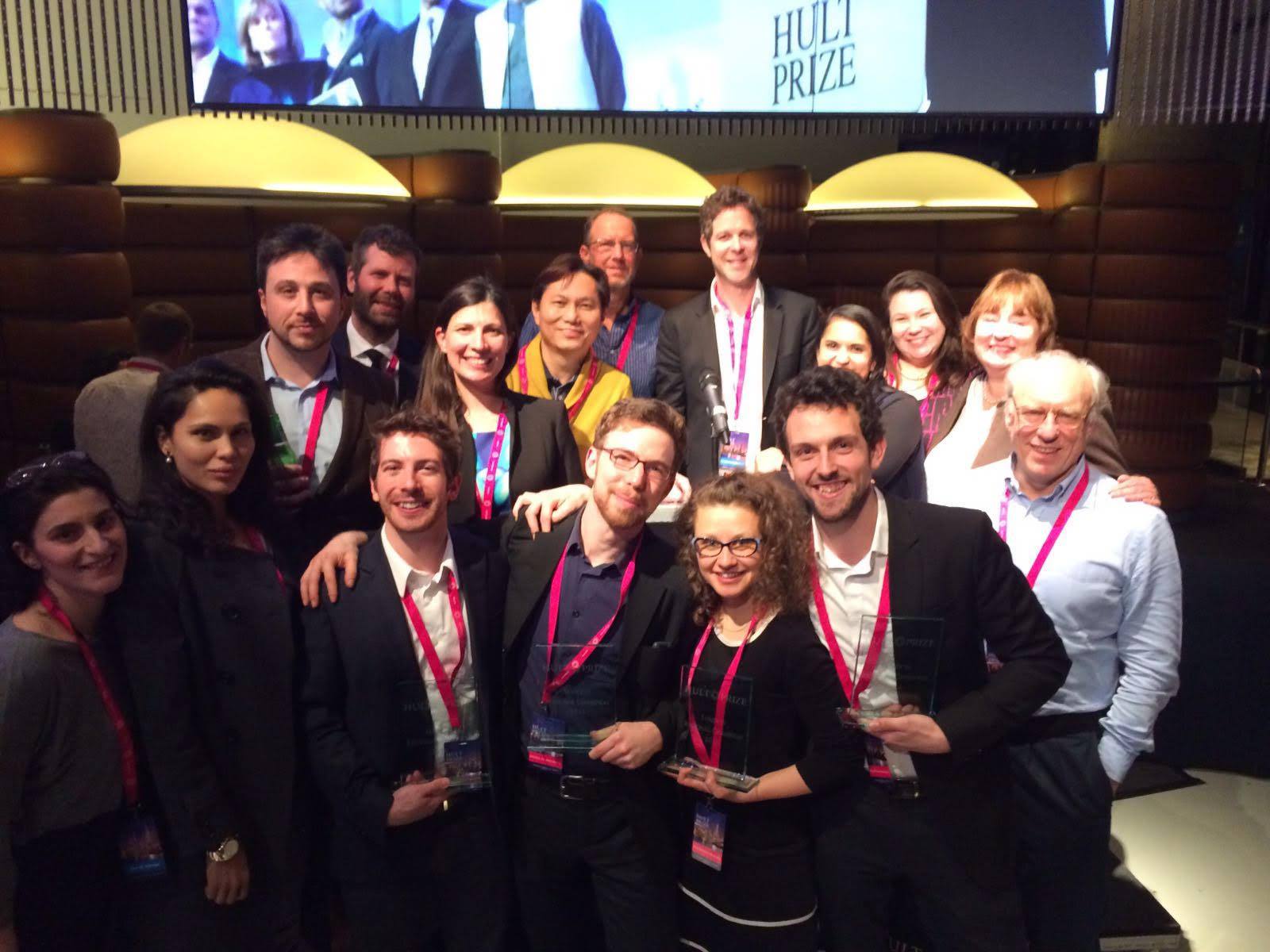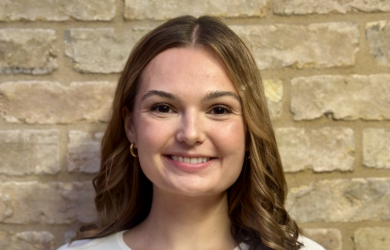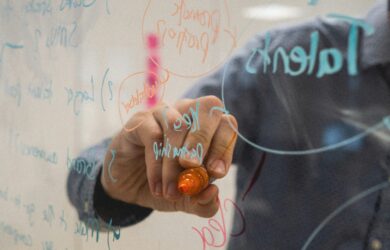
SimPrints wins regionals of Hult Prize while Favalley is a runner-up.
It's great seeing the Gates community becoming more and more active in this space, with more opportunities to work together and create greater impact.
Daniel Storisteanu
Two social enterprises involving Gates Cambridge Scholars took part in the prestigious Hult Prize regional rounds this weekend, with SimPrints being chosen to go through to the global finals later this year.
SimPrints was named overall winner of the London regionals of the Hult Prize while Favalley was one of five runners-up in its first competition.
SimPrints was co-founded by Gates Cambridge Scholars Daniel Storisteanu [2012], Toby Norman [2011] and Alexandra Grigore [2012] alongside Tristram Norman. Daniel is doing a PhD in Medicine, Toby's PhD is in Management Studies and Alexandra's focuses on nanotechnology.
Favalley's CEO is Paulo Savaget [2015], a Gates Cambridge Scholar doing a PhD in Engineering. His focus is on assessing and unravelling alternatives capable of shifting technologies towards more sustainable pathways. His previous work experience is as a social entrepreneur, lecturer and independent consultant in Brazil. Gates Cambridge Scholar Stefano Martiniani [2013] is Chief Technology Officer. He is doing a PhD in scientific computing and is interested in fundamental computational research that has the potential to be translated into technological innovation. They work alongside fellow University of Cambridge PhD students Nikita Hari and Martin Geissdoerfer.
The Hult Prize is dedicated to launching the world's next wave of social entrepreneurs. Its aim is "to encourage the world's brightest business minds to compete in teams to solve the planet's biggest challenges with innovative ideas for sustainable start-up enterprises".
Around 60 teams competed in the regional finals of the prize and the top six teams presented before over 300 participants, judges and organisers at the Museum of London on Saturday evening. The regional finalists were chosen from a pool of thousands of applicants.
SimPrints is a fingerprint scanner which enables community health workers in developing countries to access patient records through the touch of a finger. It was recently awarded £250,000 from the UK Department for International Development (DFID) for a project that will improve healthcare for over 22,000 expecting mothers and their newborns in Bangladesh slum neighbourhoods.
Favalley is a social enterprise with the mission of turning slums and favelas around the world into the next Silicon Valleys. Stefano says: "We want to disrupt the evolution of ICT for the benefit of the most vulnerable youth in the planet and simultaneously address the growing demand for ICT jobs across industries. Our vision for 2022 is to bring half a million marginalised youth into direct employment, leading to 2.5 million more jobs, providing 15 million people with better and more stable income; improved connectivity and gender empowerment."
SimPrints will now take part in the Hult Accelerator programme in July and August and will compete in the global finals in September for the US$1m prize. The global final is held at the Clinton Global Initiative's annual meeting hosted by former US President Bill Clinton. There they will pitch their ideas before a world-class audience.
Stefano says: "We admire SimPrint's passion and dedication and hope to learn from and collaborate with them in the future, to make Favalley another successful social enterprise born in Cambridge. It was amazing seeing two teams from the University of Cambridge, each with a number of Gates Scholars, pitch directly after one another in front of such an incredible audience. We could have not asked for a better debut, we have received great feedback and many words of encouragement from the judges and participants on the evening and are now trending on social media."
Among those who have tweeted support for Favalley were Jon-Andreas Soldberg, former Policy and Strategy Advisor at UN Habitat. He tweeted: "An amazing idea that I'm excited to follow further!"
Daniel Storisteanu of SimPrints said: "We had a fantastic weekend pitching alongside a lot of innovative projects. We're especially excited by the initiative started by Favalley, which we think has a lot of potential. It's great seeing the Gates community becoming more and more active in this space, with more opportunities to work together and create greater impact."
*Photo of the Simprints team with the full panel of judges.

Stefano Martiniani
- Alumni
- Italy
- 2013 PhD Chemistry
- St John's College
I left home when 16 to become a cadet of the Military School "Teulié" of Milan where I served for three years until the award of my high school diploma. After a brief encounter with the Italian Higher Education I enrolled onto a Chemistry BSc at Imperial College London.I have conducted academic research since a first year undergraduate student, first as an experimental physical chemist and then as a computational physicist. My present work involves the development of numerical techniques for the computation of volumes in high dimensional spaces and their exploration by Monte Carlo sampling methods as well as their application to the development of a statistical theory of granular physics.












